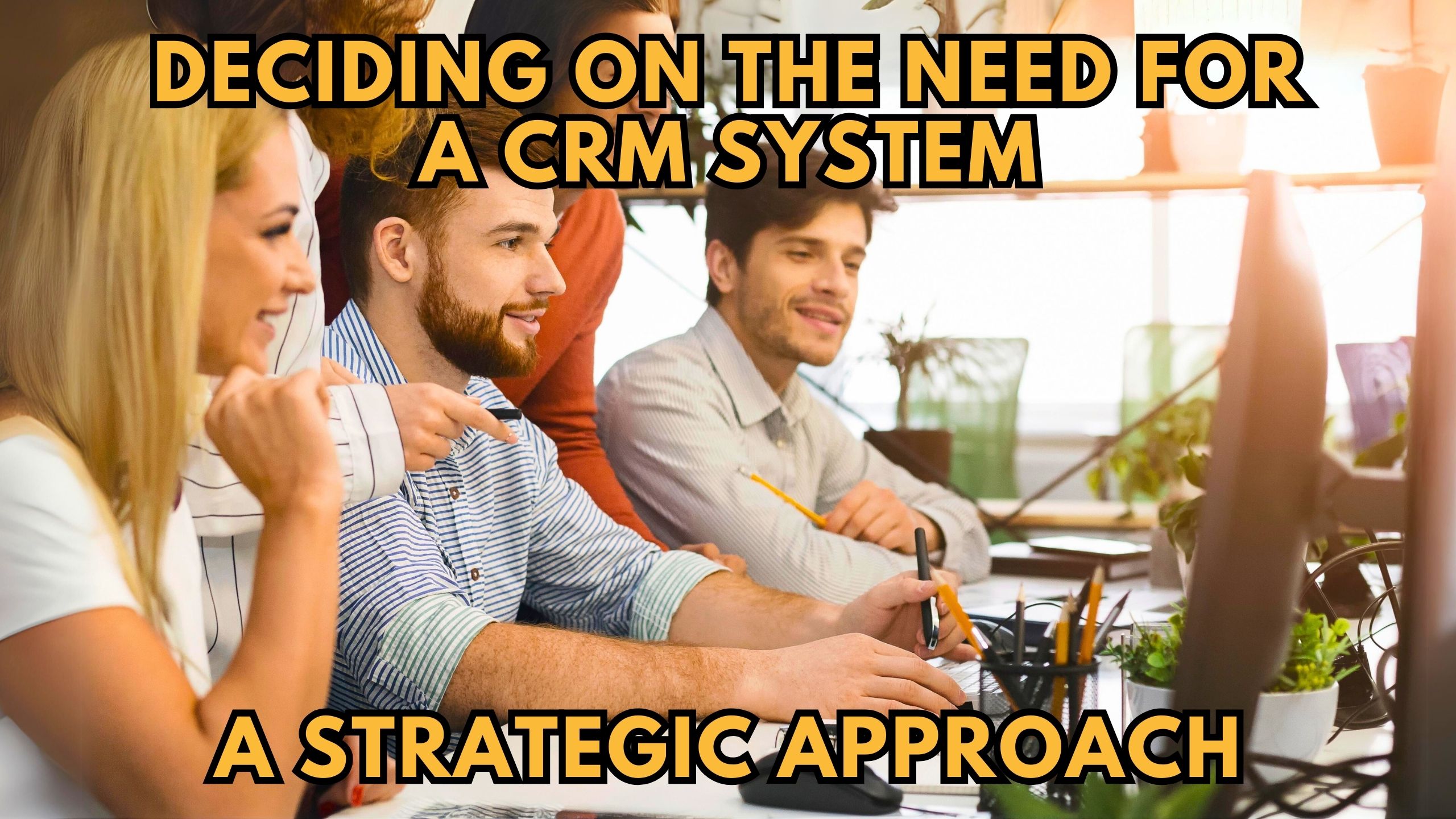Deciding on the Need for a CRM System: A Strategic Approach
- Expense Management Software Credit Cards Investing Business Solutions


Deciding on the Need for a CRM System: A Strategic Approach
In the ever-evolving landscape of business operations, determining the need for a Customer Relationship Management (CRM) system is a strategic decision that can significantly impact efficiency and customer satisfaction. In this comprehensive exploration, we delve into the key considerations and steps involved in deciding if a company truly requires a CRM system to thrive.
Understanding the Key Indicators for CRM Adoption
1. Customer Data Overload
One of the telltale signs that a company may need a CRM system is when managing customer data becomes overwhelming. As businesses grow, manually tracking interactions, preferences, and purchase histories becomes increasingly challenging. A CRM system streamlines this process, providing a centralized hub for organizing and accessing customer information, ultimately improving data management efficiency.
2. Inefficient Communication
If internal communication bottlenecks hinder collaboration across sales, marketing, and customer support teams, a CRM system can be the solution. CRM platforms facilitate seamless communication by consolidating information, ensuring everyone is on the same page and enhancing overall productivity. This enhanced collaboration contributes to a more streamlined workflow and better customer service.
3. Scalability Challenges
As a company expands, maintaining strong relationships with an increasing customer base becomes crucial. A CRM system scales with the business, offering the flexibility needed to manage growing volumes of data and interactions. This adaptability ensures that customer relationships remain a priority during periods of expansion, preventing the risk of overlooking valuable leads.
4. Limited Customer Insights
A lack of deep insights into customer behavior and preferences can hinder targeted marketing and personalized interactions. A CRM system provides analytics and reporting tools that empower businesses to gain valuable insights, allowing for data-driven decision-making and more effective customer engagement. By understanding customer preferences, businesses can tailor their strategies to meet the unique needs of their audience.
5. Loss of Sales Opportunities
If potential sales opportunities are slipping through the cracks due to disorganization or lack of follow-up, a CRM system can be a game-changer. By automating lead nurturing and tracking sales activities, businesses can ensure that no opportunity is overlooked, ultimately maximizing revenue potential. A CRM system acts as a proactive tool, reminding teams of pending tasks and opportunities to keep the sales pipeline flowing efficiently.
Relevant SaaS Products for CRM Excellence
- Salesforce: Salesforce is a market leader, offering a comprehensive CRM solution with robust features. Its customizable dashboards, extensive integration capabilities, and AI-driven analytics make it suitable for businesses of all sizes, providing a holistic approach to customer relationship management.
- HubSpot CRM: HubSpot CRM is known for its user-friendly interface and seamless integration with marketing and sales tools. It offers a centralized platform for managing customer interactions and provides in-depth analytics, making it an ideal choice for businesses seeking an all-encompassing solution to enhance CRM effectiveness.
- Zoho CRM: Zoho CRM stands out for its versatility and scalability. With features such as workflow automation, sales forecasting, and analytics, Zoho CRM caters to businesses looking for a comprehensive CRM system. Its user-friendly design makes it accessible for teams at various skill levels.
- Pipedrive: Pipedrive focuses on simplifying the sales process and enhancing CRM effectiveness. Its visual pipeline tool allows for intuitive lead tracking and management. Pipedrive’s emphasis on user experience and sales-driven features makes it a valuable asset for organizations prioritizing efficiency in their CRM strategy.
- Freshsales: Freshsales is a CRM solution designed with a strong focus on user experience and automation. Its features include AI-powered lead scoring, email tracking, and workflow automation. Freshsales is relevant for businesses seeking an intuitive platform that streamlines sales processes and enhances overall CRM efficiency.
Conclusion
In conclusion, deciding on the need for a CRM system requires a strategic evaluation of current challenges and future business goals. By recognizing indicators such as data overload, communication inefficiencies, scalability challenges, limited insights, and missed sales opportunities, companies can make informed decisions to implement a CRM system that aligns with their unique needs.
Unlock Efficiency with Subscribed.fyi: Your SaaS Solution Hub
At Subscribed.fyi, we empower freelancers, agencies, and teams to navigate the complexities of SaaS tools effortlessly. Unlock exclusive deals, save over $100,000 per year on 100+ SaaS tools, and take control of your subscriptions with our ultimate subscription management solution. Sign up for free today and discover the secret deals that await you!
Relevant Links:








